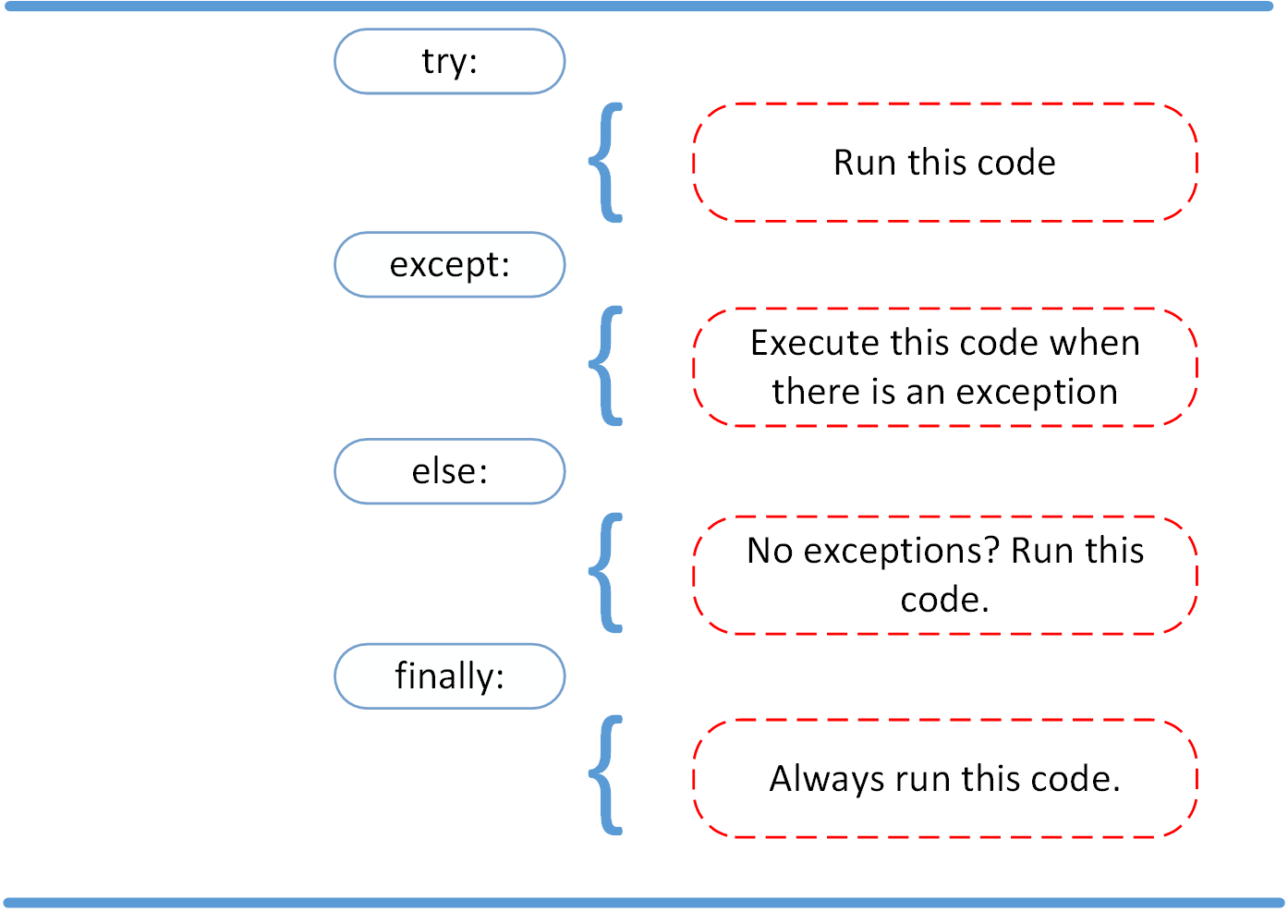A Python program terminates as soon as it encounters an error. In Python, an error can be a syntax error or an exception.
In this course, you’ll learn what an exception is and how it differs from a syntax error. After that, you’ll learn about raising exceptions and making assertions. Then, you’ll learn how to catch exceptions to prevent your program from unintentionally ending and to change the control flow of your program:

You’ll learn about the basic use of a try … except block, as well as how to extend it using else and finally.
In this course, you’ll learn how to:
- Differentiate exceptions from syntax errors
- Use the
assertkeyword to check if a certain condition is met - Write custom exceptions that subclass
Exception - Catch exceptions with a
try…exceptblock - Use the additional keywords
elseandfinally - Catch built-in exceptions
What’s Included:
- 9 Lessons
- Video Subtitles and Full Transcripts
- 2 Downloadable Resources
- Accompanying Text-Based Tutorial
- Q&A With Python Experts: Ask a Question
- Certificate of Completion
Downloadable Resources:








